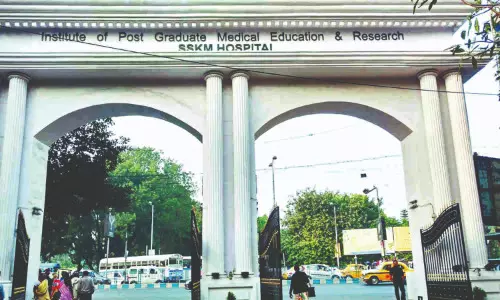State sets up 3 nodal centres for scrub typhus & leptospirosis testing

Kolkata: To check scrub typhus and leptospirosis, the state Health department has taken a new initiative by introducing three nodal centres in the state — SSKM, Calcutta School of Tropical Medicine in South Bengal and North Bengal Medical College in the north for testing samples of scrub typhus and leptospirosis affected or suspected patients.
State Health department has allotted funds of Rs 5.50 lakh for procuring IgM and ELISA test kits in these 3 new nodal centres.
According to sources, the SSKM Hospital and the Calcutta School of Tropical Medicine will receive at least Rs 1.90 lakh each while North Bengal Medical College will get Rs 1.50 lakh for procuring kits. These nodal centers will conduct confirmatory tests for scrub typhus and leptospirosis. In 2022, a sentinel lab was set up in Diamond Harbour Medical College under the National Centre for Disease Control Programme. As a few numbers of scrub typhus cases have been reported recently, the health department has decided to add these three medical colleges as the nodal centres for testing.
Around two weeks ago, a 12-year-old boy from Bagbazar was admitted to a private hospital in the city with respiratory distress and fever. After the test, the doctors at the hospital found that the boy was affected with leptospirosis. The boy was put under ventilation support.
After 12-day treatment, the patient was released from the private hospital. Leptospirosis is a disease caused by bacteria (Leptospira) found in the urine of infected animals, transmitted to humans through contaminated water, soil, or food, potentially leading to a range of symptoms, including fever, headache, and muscle aches.
In severe cases, it also affects the kidney or liver. Also known as bush typhus, scrub typhus is caused by the bite of infected chiggers or larval mites found mostly in paddy fields and bushes.
Though the infection is usually found in rural areas. While it infects both adults and children, the disease can become severe in children, if detected late as their immunity is yet to strengthen.



